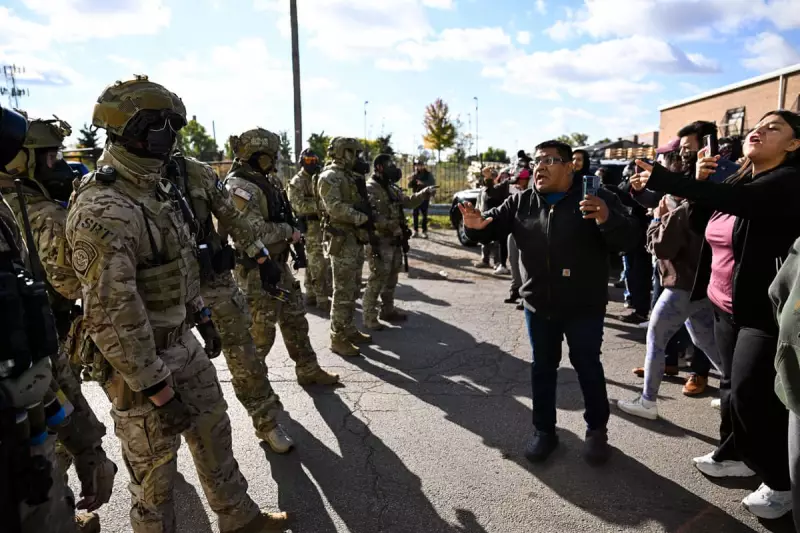
Chicago's Streets Become Battleground Against Federal Immigration Raids
In Chicago's vibrant neighbourhoods, an unprecedented confrontation is unfolding between federal immigration agents and determined residents. The Trump administration's Operation Midway Blitz, launched on 9th September 2025, has transformed the city into a flashpoint for immigration enforcement, sparking widespread community resistance.
Anaís Robles, co-owner of Colibrí Cafe in Chicago's East Side, experienced the operation's brutality firsthand in mid-October. "I saw federal agents donning masks and decided to step back," Robles recalled. "I was half a block away when the tear gas canisters hit. People were just in the streets, so to clear out the area, they teargassed all of us."
Systematic Resistance Takes Shape
According to estimates from the National Center for Immigrant Justice and Illinois Coalition on Immigrant and Refugee Rights, approximately 1,300 people have been illegally detained since Operation Midway Blitz began. The raids have prompted Mayor Brandon Johnson to call for United Nations intervention, citing ongoing violations of court orders prohibiting warrantless arrests.
Chicago's response has been equally systematic. Communities across the city have mobilised protection networks, with Mexican-born immigrants - who constitute nearly 40% of Chicago's foreign-born population - at the forefront of resistance efforts.
Diego Morales, a volunteer with PUÑO (Pilsen Unidos Por Nuestro Orgullo), has trained over 2,000 people through MigraWatch sessions since 2016. "Ideally, we want to reach a critical mass of trained people in Chicago," Morales explained. "So that everybody going about their day - whether they're a bus driver, somebody walking to a book shop, or a student - has these tools and can activate the network."
Whistlemania and Community Solidarity
On the city's West Side, Belmont Cragin United has pioneered "Whistlemania" events, where volunteers assemble kits containing whistles, resource guides, and instructional zines. According to Block Club Chicago, these gatherings have distributed more than 17,000 kits across multiple locations.
Alonso Zaragoza emphasised the movement's ethos: "We're showing them in deeds and actions that we care about them, that the city of Chicago and our neighbours care about these individuals, even if the federal government doesn't."
The economic impact has been severe, with immigrant-owned businesses particularly affected. Morgan Martinez, owner of Solar Intentions in Edgewater, organised fundraising for struggling local businesses like Edgewater Tacos, which had to close for an entire weekend due to raid-related safety concerns. "We've been able to become part of local rapid response teams that are entirely community driven," Martinez stated.
In Little Village, the Street Vendors Association of Chicago raised over $230,000 for vendors fearing detention. Maria Orozco, whose parents are street vendors, noted the dramatic decline in street activity: "You went from seeing 20 vendors to seeing two vendors out there. Sometimes it's not even the actual vendors, but their kids that are vending for them out of fear."
Despite the administration's efforts to create fatigue, Chicago's communities remain resilient. As Martinez concluded: "When we are present in our bodies, we're present with each other, which allows us to stand up for our communities."





